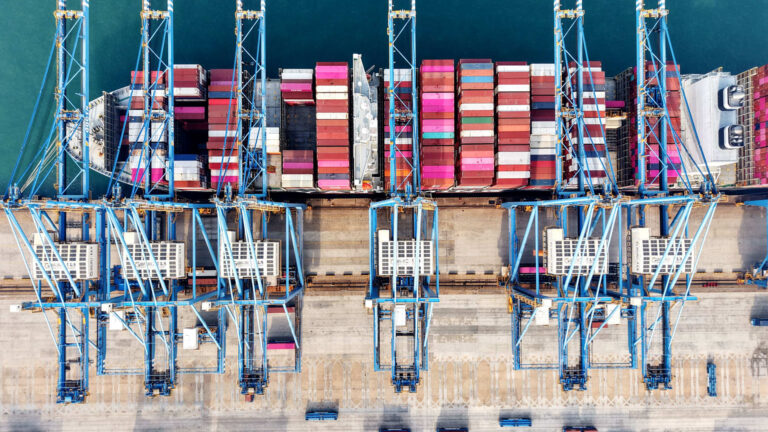Indonesia’s “Apple” and “Google” companies have banned to disappoint the country’s technology lovers Technology
Medan, Indonesia – Winston, a medical doctor who lives and works in the capital of North Sumatra, calls himself an Apple fan.
Currently the proud owner of an iPhone 15, Winson was looking forward to upgrading to the latest model, the iPhone 16, which was released in September.
However, Winston reluctantly abandoned the idea after the Indonesian government banned the sale of the iPhone 16 and Google Pixel in late October, citing the tech giants’ failure to comply with the country’s Tingkat Komponen Dalam Negeri, or TKDN, policy. it requires sourcing at least 40 percent of the phones’ parts locally.
“Indonesia’s regulations on iPhones hit me once and once was enough,” he said.
While Winston was able to buy an iPhone abroad to repatriate — a relatively common practice that’s legal as long as the phone isn’t resold — he’s previously been burned by Indonesian regulations.
“I bought the iPhone 11 in Singapore in 2019 because it was much cheaper than Indonesia, about $250 cheaper in fact. Back then, a round-trip ticket to Singapore was only $120. You could fly to Singapore and fly to Indonesia on the same day, so it was more cost-effective,” he said.
Winston used the phone for about a year without problems until the Indonesian government issued a regulation requiring all phones to be registered in 2022.
Despite registering his phone as required, the device suddenly lost signal one day and would not be able to reconnect to the network even with a different SIM card, he said.
“I went to a licensed Apple dealer in Medan because I thought there was a problem with the phone, but they just said, ‘There’s nothing we can do or suggest,'” he said.
Having no problems with his current iPhone 15, which he bought through a licensed reseller, Winston was saddled with a useless iPhone, and during his next trip to Singapore, he sold the device at a loss at a second-hand store.

Indonesia, the fourth most populous country with a population of around 280 million, is one of the world’s largest smartphone markets.
According to market research firm Newzoo, the archipelago was home to around 190 million smartphone users in 2022.
According to the Ministry of Industry, about 22,000 Google Pixel phones and 9,000 iPhone 16s were imported into the country before the authorities announced the bans in 2024.
Devices manufactured by China’s Xiaomi, Oppo and Vivo and South Korea’s Samsung dominated smartphone deliveries to Indonesia.
Abdul Soleh, a lawyer in Medan, said the exorbitant price of the iPhone 16 for many Indonesians may explain why there is more opposition to the ban.
“It’s a real shame because iPhones are very popular in Indonesia and user satisfaction is high,” Soleh told Al Jazeera.
“It would be better if the iPhone 16 was sold in Indonesia because there are a lot of fans here.”
Head of the North Sumatra Chamber of Commerce, Khairul Mahalli, said that although Indonesia’s TKDN policy is aimed at supporting local industry, it may have unintended consequences.
“As a member of the World Trade Organization (WTO) with trade industries working between countries, it is good to protect our industries, but we also need to have checks and balances,” Mahalli told Al Jazeera.
“One of the problems for the future may be that if Indonesia blocks the sale of certain products, other countries may follow suit and no longer accept the sale of Indonesian products on the international market.”
Local said it is the government’s job to find ways to minimize damage to local industries that are less severe than outright bans on foreign products.
“We don’t need to completely ban foreign sales because Indonesia’s market is big enough to accommodate foreign products with a population of more than 270 million,” he said.
“We need to see if local production can meet consumer demand.”
Rio Priambodo, head of rights and complaints at the non-profit Indonesian Consumer Organization, said consumers should think twice about buying the latest iPhone model, especially through illegal sellers in the country.
“Consumers Organization advises consumers not to simply try to buy the iPhone 16 if it is banned by the government,” Priambodo told Al Jazeera.
“If the purchases are illegal, it will remove the measure of consumer protection that all customers should have.”
To break the impasse, Apple has pledged to dramatically increase its investment in the country in exchange for lifting the ban.
In November, the California-based tech giant offered to invest $100 million in the country over two years, 10 times more than an earlier pledge to spend $10 million to build an accessories and components factory in Bandung, West Java.

Despite the proposal, the Ministry of Industry appeared to be inactive.
“From the government’s point of view, of course we want this investment to be bigger,” Febri Hendri Antoni Arif, a spokesman, said at the time.
Jakarta officially rejected the proposal on November 25, with Industry Minister Agus Gumiwang Kartasasmita saying it did not meet Indonesia’s “principles of justice”.
He said Apple has made more significant investments in neighboring countries such as Thailand and Vietnam, including $15 billion in the latter’s manufacturing facilities.
“According to the technocratic assessment, the investment amount did not correspond to the figure we consider fair,” he said.
“We want Apple to come back to do business here, but we need a fair decision.”
Meanwhile, Apple fans like Winston face the prospect of living without the latest models for the foreseeable future.
“I understand that the ban is for political reasons because Apple does not want to invest in Indonesia and I stand by my government. But I will never buy an iPhone from abroad again,” he said.








